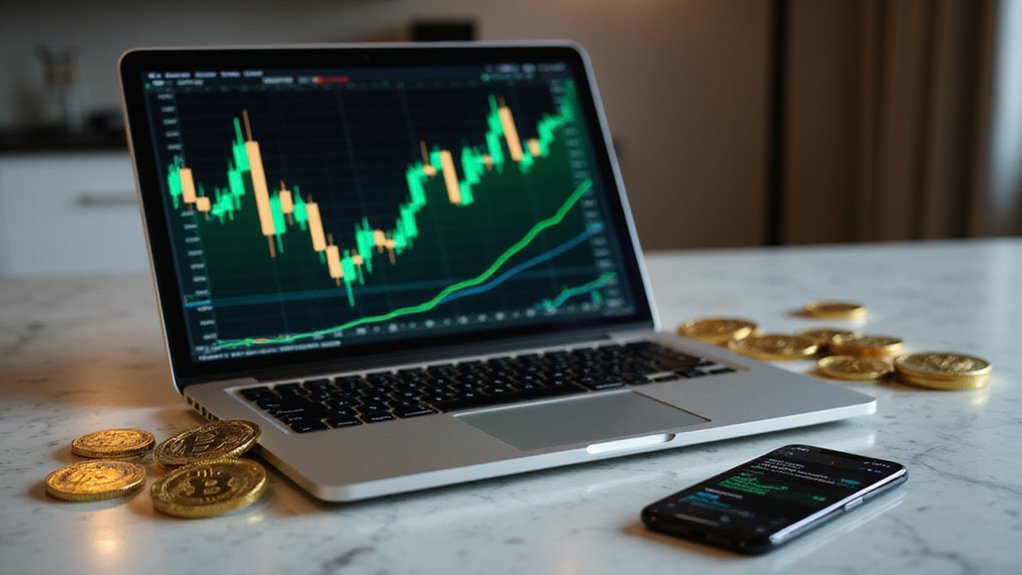The curious spectacle of two billionaires engaging in a public spat—one recently returned to the presidency, the other commanding the world’s most valuable automaker—has managed to accomplish what Federal Reserve policy makers and geopolitical tensions have struggled to achieve: genuine market disruption that transcends typical news-cycle volatility.
Tesla’s precipitous decline serves as the canary in this particular coal mine, dragging down fellow momentum darlings Palantir and Super Micro in a cascade that financial analysts are calling a “crowded retail crash.”
The irony proves rich: Musk’s own company becomes the primary casualty of his political maneuvering, demonstrating how personal vendettas can trump (pardon the expression) fundamental business logic in today’s hyper-connected markets.
The cryptocurrency ecosystem, already prone to dramatic swings based on tweets and regulatory whispers, hemorrhaged nearly $200 billion in market capitalization as investors fled risk assets with characteristic herd mentality.
This digital asset selloff underscores an uncomfortable truth—markets that position themselves as alternatives to traditional finance remain surprisingly vulnerable to traditional political theater. The volatility highlights critical concerns about token supply mechanisms and investor confidence that form the backbone of cryptocurrency valuations.
What makes this particular feud economically significant isn’t merely the personalities involved, but rather the intersection of political influence and market concentration.
When disputes over tax and budget policies become personal battles between figures who collectively control hundreds of billions in market value, the resulting uncertainty ripples through global trading systems with amplified force.
The situation has introduced a novel form of retaliation risk into equity valuations.
Investors now must calculate not just regulatory probabilities and earnings potential, but also the likelihood that personal animosity might translate into policy targeting specific companies or sectors.
Such considerations would have seemed absurd in previous decades, yet here we are, pricing political grudges into algorithmic trading models.
Social media platforms have become the primary battlefield for this economic warfare, transforming what might once have been private disagreements into public market-moving events. The broader market context amplifies these concerns, with the Nasdaq near record highs creating additional vulnerability to momentum-driven selloffs.
Each post carries potential eight-figure consequences, creating a feedback loop where political posturing directly impacts the very wealth that enables such influence.
The broader implications suggest that traditional risk management frameworks may prove inadequate for an era where personal relationships between powerful individuals can generate systemic market volatility virtually overnight. The market tremors extended beyond individual stocks, as Asian markets showed widespread weakness with tech-heavy indexes sliding in response to the escalating tensions.








